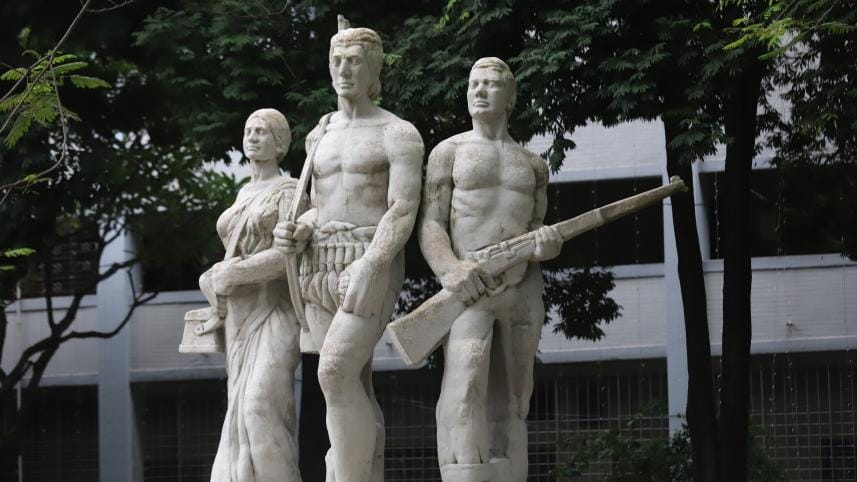Rising from the ashes: Can Dhaka move on for good?

The mayhem that swept over the nation is still alive and vivid in our memories. The harrowing violence that has been carried out will forever remain imprinted in our hearts. Hence the question that haunts us all: after what has happened, can we ever get over this?
It is a legit question. A few days ago, I watched and read news in aghast, seeing Dhaka — the city dearest to my heart — go up in flames. Attacks on expressway toll plaza and metro rail station, for me, were the breaking point, as the two are embodiments of a city of progress and hope.
Moreover, we have all witnessed — in person when commuting during curfew breaks and also on the news — the immediate aftermath, such as burned up vehicles with just their bare frames remaining.
So, the natural question obviously is, can Dhaka ever move on? It is not just about the financial cost or the logistics of rebuilding or reinstalling infrastructure. It goes much beyond that, involving the very psyche of the city.
To answer this, one thing that can be kept in mind is Dhaka's enduring and resilient personality. It is much like a living organism. A rude and greedy beast our city may be, but nevertheless, one that also has the power to heal itself.
How does it do so? Well, that's harder to explain, but if I do make an attempt to elaborate, the rationale would lie on one hand in the dreams and ambitions of the people of this metropolis and, on the other, in its hardened character.
Dhaka is the "jadur shohor" where people want to make the best for themselves, at least in terms of materialistic or worldly achievements. We always expect — nay, demand — the city to give us ways to wealth and fortune. And in reality, despite all its problems, the city offers them to those who are ambitious, bold, and smart. It is not hard to imagine that this attribute of our capital will continue in order to feed the ambitions of city dwellers.
Soon enough, the wheels of the economy will regain momentum, and dreams and desires will take over once again, hence bringing back the Dhaka we all know of. The toughened and rather unsentimental quality of this city — though not always a good thing — shall work here as a necessary evil and help us move on (but hopefully with due justice served).
Is it too soon for so much optimism, though? Possibly, but being a history buff who is obsessed with Dhaka, I am acutely aware of the tragedies, anarchies, and catastrophes our city suffered in the distant and near past, and how the capital has always turned around.
What is the last good memory you have of a "normal" Dhaka before chaos broke out? Where did you leave things? May be a fun night out with friends at your favourite burger joint or a project at the office you were excitedly planning? Whatever that may be, you can pick it up from there, and our city — this hungry, impatient, peculiar creature — will carry you forward.
To exemplify, the last good memory I have was at Dhaka University sometime before the student protests escalated.
I remember seeing a large and splendid Buddha statue on the premises of Jagannath Hall, as well as the iconic Aparajeo Bangla in front of Kala Bhaban. Little did I know that the situation around these monuments was going to turn into a whirlwind in the coming days!
I shall restart my life in Dhaka by drawing inspiration from both: The Buddha at the campus now reminds me that while suffering may be a part of life, we still ought to strive for nirvana, or at least a slice of peace and happiness. Meanwhile, the trio that is Aparajeo Bangla assures me of the invincible nature of our country and its people.
I believe that the wounds of this city will surely heal, although a deep scar will remain forever.
Meanwhile, as we count losses — at the peak of which is the irreversible cost of many human lives — we all know of the loose ends and unresolved issues that need to be fixed.
For the unresolved, I can offer an admittedly not-so-satisfying answer, a quote that I read in a history book, Glimpses of Old Dhaka, a quote that nonetheless gives hope: "Fear not if the pearls are scattered unstrung; they only await to be restrung in better order."



 For all latest news, follow The Daily Star's Google News channel.
For all latest news, follow The Daily Star's Google News channel.
Comments